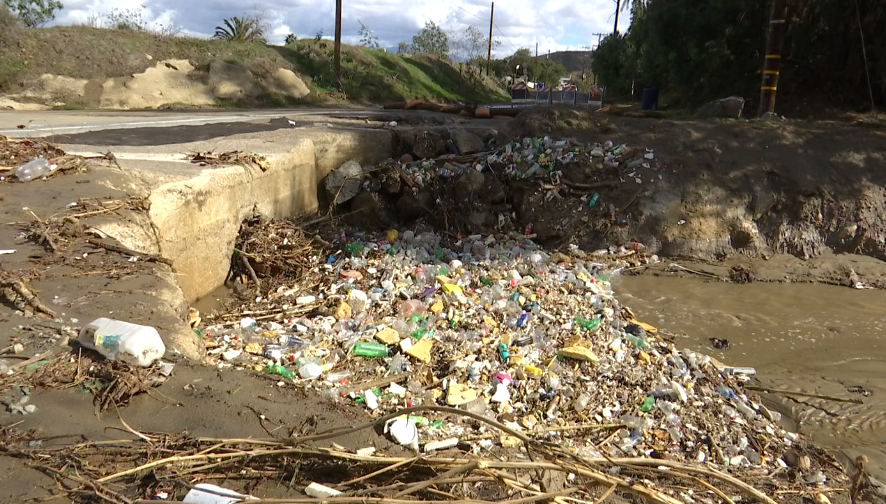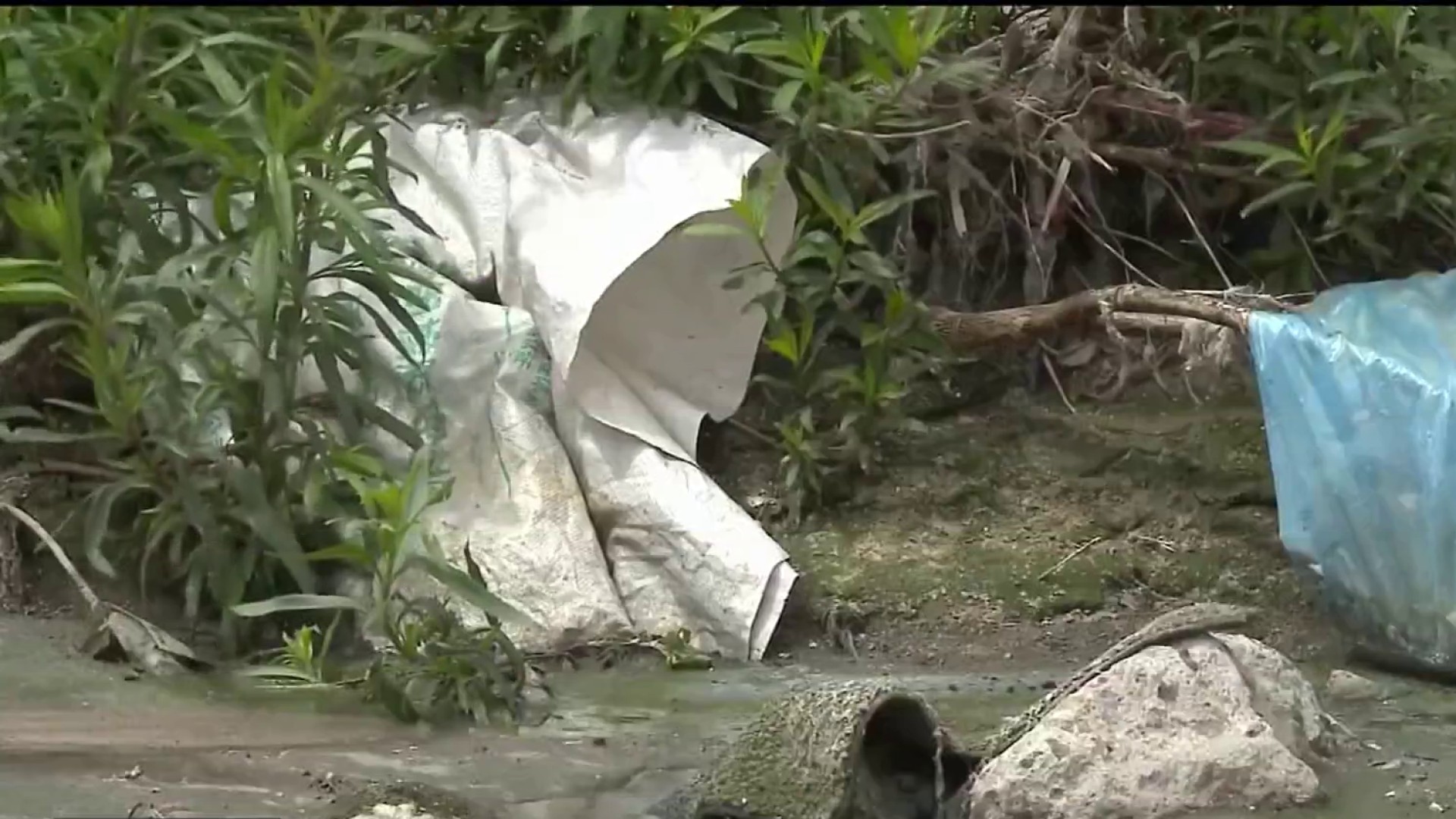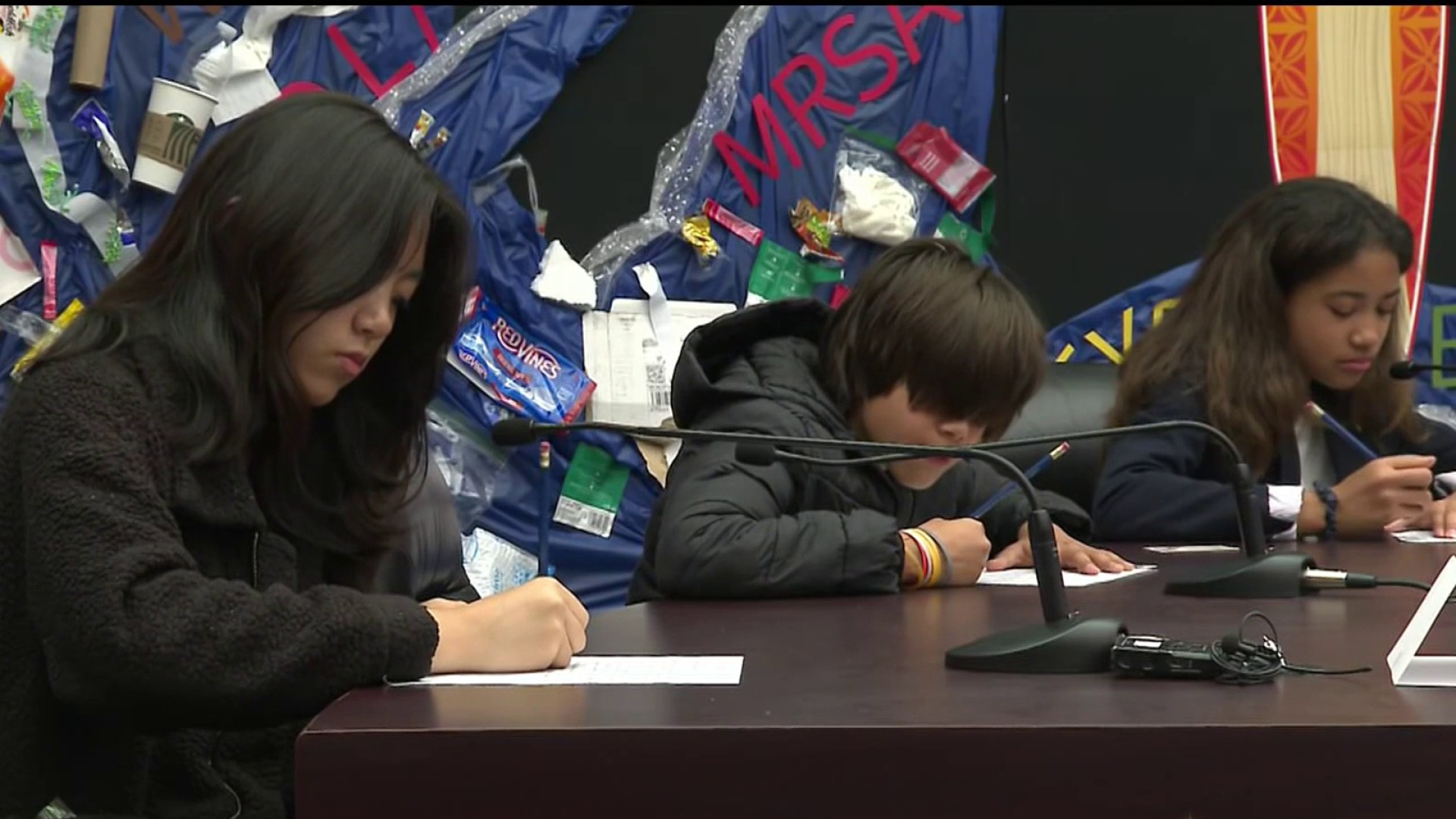
Following 31 years of consecutive extensions of a local state of emergency regarding sewage outflow in the Tijuana River Valley, the San Diego City Council Tuesday approved a resolution asking for a national emergency.
The largely symbolic item passed 7-0, and officially implores the federal government to make the local crisis a recognized national one, as well as asking for total funding of the Environmental Protection Agency's infrastructure solution to the pollution.
Toxic Tide: The sewage crisis at the border
NBC 7 investigates the millions of gallons of raw sewage crossing from Tijuana into the United States every day, including how the crisis affects our health — and what must be done to end it.
Get top local stories in San Diego delivered to you every morning. Sign up for NBC San Diego's News Headlines newsletter.
Following the border sewage crisis
Councilwoman Vivian Moreno, who put forward the resolution and represents San Diego's southernmost communities such as Nestor, Egger Highlands, San Ysidro and Otay Mesa, said she feared for the health of her young child during an especially egregious incident amid a recent heat wave.
In early September, high levels of noxious gases such as hydrogen sulfide and hydrogen cyanide were measured by scientific teams in the river valley and noticed by residents due to the rotten egg smell even miles from the border. Ultimately, crews from San Diego County determined there was no immediate health risk, but many residents — including Moreno — believed the crisis had reached its nadir.
"We're left feeling like the federal government has forgotten about us," she said during Tuesday's council meeting.
The San Diego City Council first declared a state of emergency because of the pollution — ranging from raw sewage to industrial runoff — in 1993. Imperial Beach put out a similar declaration in 2017, followed by the county in 2023.
The glacial pace of action left many South Bay residents speaking at the meeting angry, wondering where millions of dollars intended to solve the crisis have gone. Others complained of chronic health issues they associate with the bacteria and foul odors coming from the valley.
Since October 2018, the United States section of the International Boundary and Water Commission has catalogued more than 200 billion gallons of toxic waste coming into the United States through the Tijuana River Valley. According to a city document on Tuesday's resolution, the commission has spent just $4 million of $40 million allocated for infrastructure maintenance at the broken South Bay International Wastewater Treatment Plant.
The USIBWC was even sued by the city to make the commission comply with the Clean Water Act. A total of $300 million was appropriated through the U.S.-Mexico-Canada Agreement for the wastewater plant. In August, the USIBWC announced it will use the more than $400 million in federal funding secured by San Diego's Congressional delegation to repair and expand the plant.
"Over the last three decades, the federal government has said [the people of the South Bay] don't matter enough to take action," City Council President Sean Elo-Rivera said. "I wish this was one we could solve on our own, but we need the federal government to get this done."
U.S. Sen. Alex Padilla and Rep. Juan Vargas, D-San Diego, announced a bill in early September intended to consolidate all infrastructure project efforts in the Tijuana and New river watersheds under the Environmental Protection Agency. The intent is to avoid more of the decades of red tape and get the project done, they said.
"It should be an outrage to all of us that in 2024, raw sewage and toxic waste is shutting down public beaches, polluting the air, and threatening the health of our families and readiness of our military and border personnel," Padilla said. "By assigning the (EPA) with the clear role of coordinating with federal, state, local, and Tribal leaders to maintain the health of the watershed, we're bringing the full weight and commitment of the federal government to address the Tijuana River pollution crisis."
That bill remains in Congress's Committee on Environment and Public Works.
Following the gas and odors in the South Bay, the county Board of Supervisors acted, with Supervisor Terra Lawson-Remer asking cities in her north coastal district to pledge funding to help purchase more air purifiers for residents in South Bay coastal communities — saying she will match donations with county grant funding.
Board Chairwoman Nora Vargas secured resources and support from the California Air Resources Board.
"This commitment from the state is a critical step toward securing the necessary resources and partnerships to protect the health of our residents and the environment," Vargas said. "Our communities have been suffering from the detrimental effects of cross-border air pollution for far too long, and it's time we see real change. Clean air and safe, open beaches should be the norm, not the exception. I look forward to collaborating with our stakeholders to develop sustainable solutions that will bring lasting relief to our binational region."
Additionally, the USIBWC broke ground Monday on an infrastructure improvement project at the international wastewater treatment plant.
"This is a major victory for our residents, but the fight is far from over," Vargas said.




